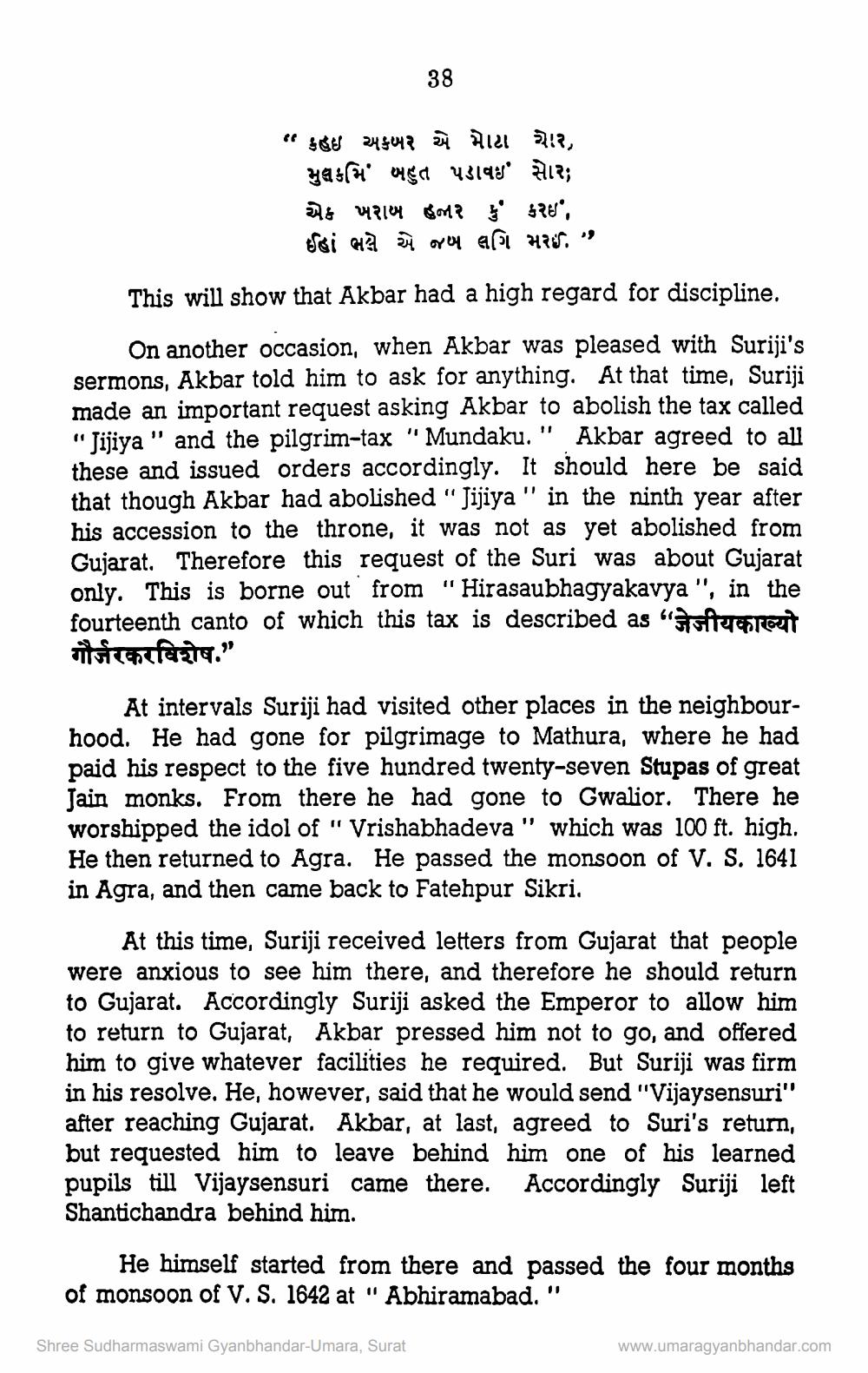________________
38
" 485 245442 Z ALUL 3!?,
મુલકમિં બહુત પડાવઈ સે; એક ખરાબ હજાર કુકરઈ, ઈહ ભલે એ જબ લગિ મરી ”
This will show that Akbar had a high regard for discipline.
On another occasion, when Akbar was pleased with Suriji's sermons, Akbar told him to ask for anything. At that time, Suriji made an important request asking Akbar to abolish the tax called "Jijiya" and the pilgrim-tax "Mundaku." Akbar agreed to all these and issued orders accordingly. It should here be said that though Akbar had abolished " Jijiya " in the ninth year after his accession to the throne, it was not as yet abolished from Gujarat. Therefore this request of the Suri was about Gujarat only. This is borne out from "Hirasaubhagyakavya ", in the fourteenth canto of which this tax is described as "after rout गौर्जरकरविशेष."
At intervals Suriji had visited other places in the neighbourhood. He had gone for pilgrimage to Mathura, where he had paid his respect to the five hundred twenty-seven Stupas of great Jain monks. From there he had gone to Gwalior. There he worshipped the idol of "Vrishabhadeva " which was 100 ft. high. He then returned to Agra. He passed the monsoon of V. S. 1641 in Agra, and then came back to Fatehpur Sikri.
At this time, Suriji received letters from Gujarat that people were anxious to see him there, and therefore he should return to Gujarat. Accordingly Suriji asked the Emperor to allow him to return to Gujarat, Akbar pressed him not to go, and offered him to give whatever facilities he required. But Suriji was firm in his resolve. He, however, said that he would send "Vijaysensuri" after reaching Gujarat. Akbar, at last, agreed to Suri's return, but requested him to leave behind him one of his learned pupils till Vijaysensuri came there. Accordingly Suriji left Shantichandra behind him.
He himself started from there and passed the four months of monsoon of V. S. 1642 at " Abhiramabad."
Shree Sudharmaswami Gyanbhandar-Umara, Surat
www.umaragyanbhandar.com




